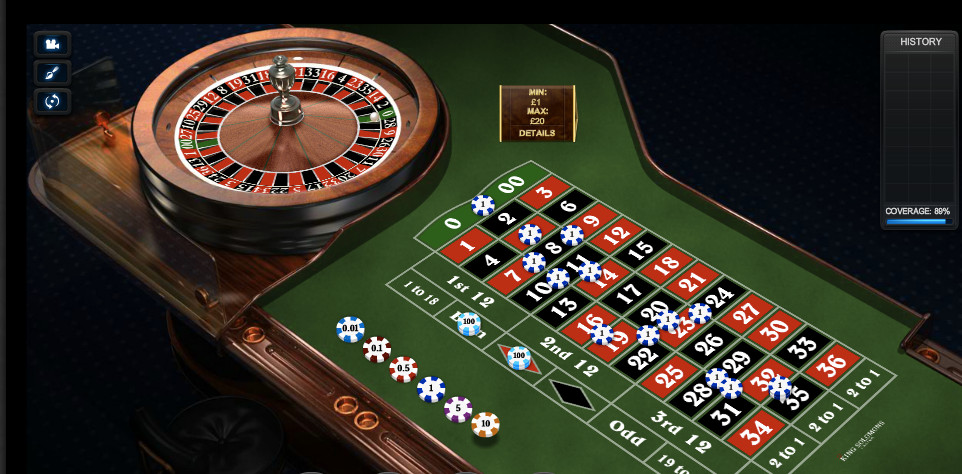Net Roulette
Free Roulette Games - Getting to Grips with the Rules. As online casino games go, free roulette is one of the easiest to learn, and amongst the most fun for both new and experienced players to play. American roulette – This type of roulette has 38 sections on the roulette wheel (0, 00 and number s from 1 to 36). The number of possible outcomes is different, but the multiples of your bet you get when you win are the same. That means American roulette has a worse RTP (94.74%) than European roulette (97.3%). You should therefore play.
Selfies are being ripped apart by an AI-driven web experiment that uses a huge image database to classify pictures of people.
Imagenet Roulette
From 'timid defenceless simpleton' to 'insignificant student', the online project ImageNet Roulette has handed out brutal assessments to an increasingly long list of users keen to experiment.
- Online Roulette Games. RouletteOnNet offers more than just articles since we also enable people to play online roulette games here. You’ll find both European roulette and American roulette games, which offer realistic roulette action free of charge. In addition to this, our online roulette games come complete with sound effects and crisp.
- The number one fun strategy generator for Rainbow Six: Siege!
The web page launched as part of Training Humans, a photography exhibition conceived by Professor Kate Crawford and artist Trevor Paglen.
Ever wonder how algorithms trained on human classification categories type you? Thanks to this new tool from @katecrawford and @trevorpaglen’s “Training Humans” project now you can: https://t.co/ESrpzyjtxU
— J.D. Schnepf (@jd_schnepf) September 15, 2019weird flex but ok #imagenetpic.twitter.com/0EWCoZzmhz
— Chid Gilovitz (@chidakash) September 16, 2019The gallery contains several collections of pictures used by scientists to train AI in how to 'see and categorise the world', and ImageNet Roulette is based on this research.
The tech has been trained using the existing ImageNet database and is designed to be a 'peek into the politics of classifying humans in machine learning systems and the data they are trained on'.
It has since gone viral on social media, with huge numbers of users ignoring a warning that the AI 'regularly classifies people in dubious and cruel ways'.

While some have been left flattered by being assigned descriptors like 'enchantress', others have been told they fall into categories like 'offender' and 'rape suspect'.

More from Science & Tech
I am flattered by ImageNet's classification of me pic.twitter.com/6yHE3vESyZ
— sᴛᴇʟʟᴀ (@computerpupper) September 16, 2019📯 mortal soul, available for recitals.
(via ImageNet https://t.co/6wDgGC9cXH) pic.twitter.com/jWwIRtqyeu

In a bid to explain why people might receive unflattering designations, a post on the site says they are all based on existing data already assigned to pictures in the ImageNet database.
The original database was developed in 2009 by scientists at Princeton and Stanford universities in the US, and has since assigned more than 20,000 categories across millions of images.
ImageNet Roulette is 'meant in part to demonstrate how various kinds of politics propagate through technical systems, often without the creators of those systems even being aware of them'.
Hmmm. Not sure what I make of this ImageNet algorithm... pic.twitter.com/PTCVevgfCJ
— Thomas Maidment (@maidment_thomas) September 16, 2019The page also states that it 'does not store the photos people upload or any other data' - reassuring those who may have been put off by privacy concerns surrounding other recent picture-driven internet phenomena.
Earlier this year, hundreds of thousands of people began to share their photos from FaceApp, which alters selfies to make them look older, younger, or to change their gender or hair style.
Roulette Recovery
Some users expressed fears over its terms and conditions allowing the app to collect data from phones, and a claim that its parent company was based in Russia and had received funds from the Russian government.